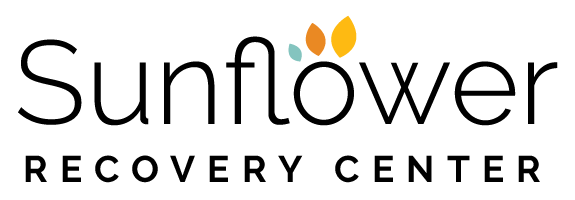When someone you care for is battling addiction, the idea of rehab can be both a beacon of hope and a source of anxiety. What will the experience be like? What actually happens behind the doors of a treatment center? Will they be well cared for? Does treatment even work? At Sunflower Recovery, our goal is to answer these questions with openness and clarity, guiding families through every step of the recovery journey. This blog will provide an in-depth look at the stages of rehab, the treatment modalities employed, and how families can support their loved ones during this transformative process.
The Decision to Enter Rehab: A Critical First Step
For those struggling with addiction, the decision to seek treatment is one of the hardest but most important choices they will ever make. For families, it can feel like a moment of relief—yet it often comes with many unknowns. We understand that addiction is not a moral failing but a medical condition that requires comprehensive care. When someone chooses rehab, they are not just making a decision to stop using substances; they are committing to rebuilding their life with the support of a caring, experienced team like the one we have at Sunflower Recovery.
What to Expect During Admission
The first step in any treatment program is a thorough assessment. The admissions team will ask detailed questions about your loved one’s history of substance use, mental health, and any co-occurring disorders. This comprehensive evaluation allows the clinical team to develop an individualized treatment plan that addresses the unique needs of the person entering treatment.
This initial phase is critical for setting up the treatment journey for success. Families should be prepared for open, honest communication with the team as well. This is also when any logistical concerns—like insurance, duration of stay, and any special accommodations—are addressed.
Inpatient Treatment: Structured & Supportive Care
Once detox is complete (if needed), individuals typically transition into inpatient rehab. This phase of treatment is highly structured and provides a safe environment where individuals can focus entirely on their recovery without the distractions or temptations of daily life. At Sunflower Recovery, our inpatient program is designed to help individuals not only stop using substances but also understand the root causes of their addiction.
Evidence-based therapies form the cornerstone of our treatment approach. These include:
- Cognitive Behavioral Therapy (CBT): Helps individuals identify and change negative thought patterns and behaviors that contribute to substance use.
- Dialectical Behavioral Therapy (DBT): Teaches emotional regulation and coping strategies, which are essential for individuals who have trouble managing stress or interpersonal relationships.
- Trauma-Informed Care: Many individuals struggling with addiction have experienced significant trauma. Our team ensures that treatment is sensitive to the past traumas that may be influencing present behavior.
In addition to these therapies, our program offers holistic treatments such as yoga, mindfulness meditation, and art therapy. These methods help individuals reconnect with their bodies and minds, fostering overall wellness and resilience in the face of cravings or emotional distress.
Family Involvement: A Key to Long-Term Success
It is our belief that family involvement is critical to the success of any treatment plan. Addiction affects the entire family unit, and it is crucial that loved ones are educated about the nature of addiction and their role in supporting recovery.
Family therapy sessions are an integral part of our treatment approach. These sessions help to rebuild trust, improve communication, and address any family dynamics that may have been affected by addiction. Family members learn how to support their loved one in a healthy way without enabling addictive behaviors.
We also provide educational workshops for families, offering insights into what to expect during and after treatment. Understanding the rehab process and how recovery continues beyond the walls of Sunflower Recovery can help families provide the long-term support their loved one needs.
Aftercare & Continued Support: Beyond Inpatient Treatment
Recovery doesn’t end when a person leaves treatment. In fact, aftercare is one of the most crucial aspects of a sustainable recovery. Our team works closely with each individual to develop a thorough aftercare plan that includes:
- Outpatient Therapy: For those who need continued structure and support but no longer require 24/7 supervision.
- Sober Living homes: These provide a transitional environment for individuals who are not yet ready to return to their normal living situation.
- Support groups: Group meetings, such as Alcoholics Anonymous (AA) or Narcotics Anonymous (NA), are often recommended as part of an ongoing recovery plan.
- Relapse prevention strategies: We teach practical skills to manage triggers, cope with cravings, and develop healthier coping mechanisms for stress and emotional challenges.
Supporting Your Loved One in Rehab
As a family member, it is natural to want to do everything you can to help your loved one succeed in treatment. However, it is important to remember that recovery is a personal journey, and the person in treatment must take responsibility for their own healing. That said, there are ways you can offer support:
- Educate yourself about addiction and recovery. The more you understand, the more effective you will be as a support system.
- Participate in family therapy sessions. These provide an opportunity for healing within the family unit and help everyone get on the same page about how to move forward.
- Maintain open communication with the treatment team. They can offer guidance on how best to support your loved one during this time.
- Take care of yourself. Supporting someone in recovery can be emotionally taxing. Don’t neglect your own needs and well-being.
The Sunflower Recovery Difference
At Sunflower Recovery, we are more than just a rehab center—we are a place of healing, hope, and new beginnings. If you or a loved one are considering rehab, know that there is hope, and help is available. Contact us today to learn more about our programs and how we can support you on the path to recovery.

